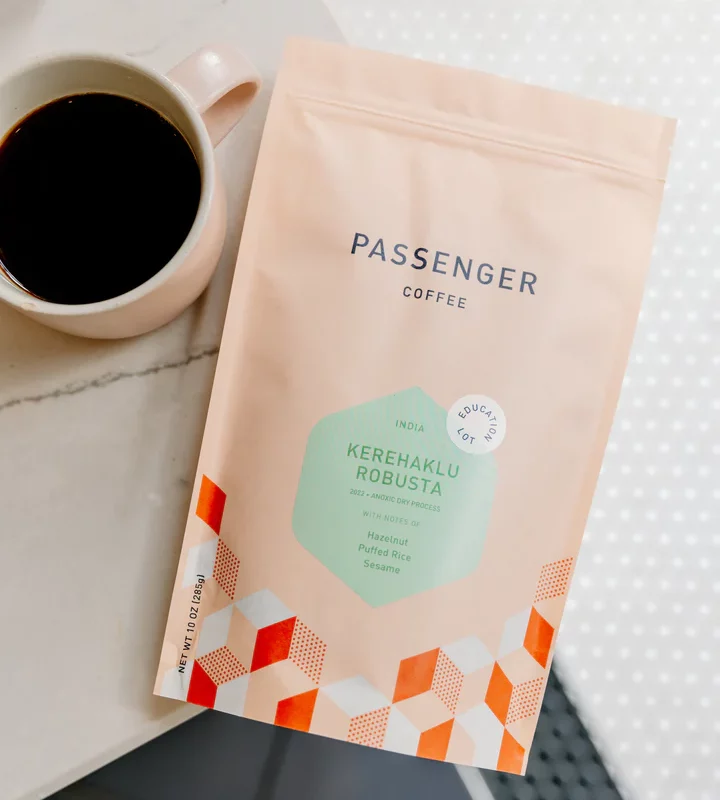
About this Coffee
This robusta species natural from Kerehaklu Estate opens up with a rich fragrance of puffed rice, bubblegum, and hazelnut on the nose. An aroma of malted chocolate and mild dried fruit introduces a rich-bodied yet clean cup, with toasted sesame and a creaminess reminiscent of oat milk in the finish.
This dry processed robusta cultivar from Kerehaklu Estate is the first ever robusta species coffee purchased by Passenger, and represents our first year working with the impressive father and son duo of Ajoy and Pranoy Thipaiah at Kerehaklu Estate in Chikmagalur, India.
Some of the finest coffees being produced in India today come from the Chickmagalur region in the southwest state of Karnataka, where coffee was first planted in India in the 17th century. According to historical record, the sufi monk Baba Budan smuggled arabica coffee seeds to India from Yemen where, at the time, export of coffee was tightly controlled, with coffee only leaving Yemen in a roasted or boiled state so as to prevent propagation of the crop elsewhere. After successful cultivation, the hills that became home to the many flourishing coffee estates that emerged in the mountainous Western Ghats came to be eponymously known as the Bababudangiri. Introduction of robusta species to India came later, arriving at the close of the 19th century by way of the then Dutch colony of Java. While India is capable of producing high quality specialty arabica coffee, it remains the case that India is one of the largest producers of Robusta coffee in the world today.
The Kerehaklu Estate in Karnataka is run by father and son duo Ajoy and Pranoy Thipaiah, who’s combined knowledge of biology, agronomy, and agriculture comes together to create some of the most compelling coffees coming out of India that we’ve had the opportunity to taste. The lush Kerehaklu estate is home to dense old-growth forest that’s rich in biodiversity and supportive of arabica, robusta, and liberica species, as well as the occasional itinerant elephant or tiger.
This robusta selection is a cultivar known as CxR, which is one of a number of hybrid cultivars created at the Central Coffee Research Institute of India (CCRI) that includes genetics from two distinct species: Congensis (a species believed to be native to the Congo) and Robusta. The result is a compact plant capable of high density planting and yield potential, as well as improved cup quality and the ability to yield fruit in as little as 1-3 years. As is true of this robusta selection, Pranoy prefers to naturally process the majority of his robusta harvest, using an anoxic, or reduced oxygen, fermentation process. This particular lot was fermented in whole cherry in a reduced oxygen environment for 22 hours before being spread out to dry on raised beds inside the Thipiah’s impressive ventilated polyhouses.
For a more in-depth look into this coffee and Kerehaklu estate, head over to our Blog section to read selections from an interview we recently did with producer Pranoy Thipaiah